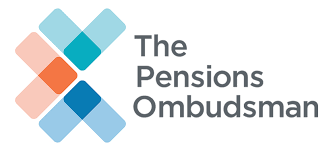The employer contribution rate of the Teachers’ Pension Scheme (TPS) will increase from 23.6 per cent to 28.6 per cent from April 2024, the government has announced.
This 5 percentage point rise equates to a 20 per cent increase in employer pension costs for independent schools from April 2024, according to Broadstone.
The cost increase also follows the previous cost rise of 40 per cent that took effect in September 2019.
A total of 335 independent schools have left or announced they plan to leave the TPS since 2018, as at October 2023.
According to LCP, many schools will view the latest future increase as a tipping point.
It noted that plenty of schools had proposed changes to their pension arrangement over the past few years, and many more will now be considering their options.
However, LCP stated that schools will need to have a “compelling rationale for change” due to the cost-of-living crisis and increasing union involvement, and be able to justify their proposals to their teachers as a proportionate response.
“The rate rise will come as a shock to the diminishing number of independent schools that remain in the TPS,” commented Broadstone head of business development, Neil Barton.
“It comes at a time when many schools in the sector are battling financial challenges. In September, Labour announced that it will add VAT to private school fees within its first year of government if it wins the next general election.
“We know from recent conversations with our independent school clients that they fear this will affect pupil numbers, so the additional 5 per cent needed for the TPS is a crushing blow and is likely to force even more schools to review their position regarding the TPS.
“We expect significant numbers of independent school operators and governing bodies will consider whether changes should be made. Many schools that have fully exited the TPS have introduced defined contribution schemes with a higher-than-average employer contribution, but other alternatives like phased withdrawal, cost sharing and parallel schemes are worth exploring.”
LCP partner, Luke Hothersall, added: "This extra cost will be very unwelcome news for independent schools at a time when there are many other risks on the horizon like potentially being required to charge VAT on school fees under a Labour government.
“At the end of the day, unless schools take action to offset or mitigate the impact, increased costs means parents picking up the tab in the form of higher fees.”
Also commenting on the announcement, LCP TPS Advisory Practice head, Richard Soldan, said: “This rise has been on the cards since the summer, but now the rate is known schools in the TPS need to urgently consider their options given the increase in contributions from April next year, which is only five months away.
“Given these timescales, it may be tempting to jump straight into a consultation with teachers. However, each school is different and there’s no single right answer, so it’s really important that a school reaches a conclusion that reflects its own circumstances.”
Latest News
-
Govt urged to prioritise pension policy stability in Spring Statement
-
Just Group underlying operating profit falls by 39%
-
Employers warned modest pension defaults risk worsening adequacy gap
-
Aegon updates modelling tool to help members benchmark retirement needs
-
News in brief - 27 February 2026
-
PPF levy to remain at zero for 2026/27
Private markets – a growing presence within UK DC
Laura Blows discusses the role of private market investment within DC schemes with Aviva Director of Investments, Maiyuresh Rajah
The DB pension landscape
Pensions Age speaks to BlackRock managing director and head of its DB relationship management team, Andrew Reid, about the DB pensions landscape
Podcast: From pension pot to flexible income for life

Podcast: Who matters most in pensions?

In the latest Pensions Age podcast, Francesca Fabrizi speaks to Capita Pension Solutions global practice leader & chief revenue officer, Stuart Heatley, about who matters most in pensions and how to best meet their needs
© 2019 Perspective Publishing Privacy & Cookies











Recent Stories